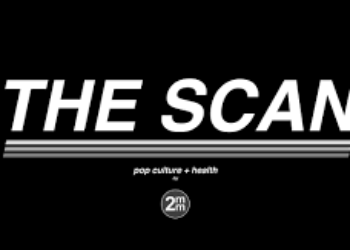Clioquinol improves social interaction in mouse models of autism [PreClinical]
1. Treatment with clioquinol (CQ), a small molecule drug that affects zinc regulation, improved social interaction in two mouse models of autism spectrum disorder (ASD).
2. CQ functioned by increasing zinc concentrations in the brain, which in turn restored the compromised neuronal N-methyl-D-aspartate (NMDA) signaling of mice affected with ASD.
Evidence Rating Level: 3 (Average)
Study Rundown: Around 1 in 68 children are diagnosed with ASDs, with rates continuing to rise. People affected by ASD typically show impaired social interaction and poor communication skills, among other symptoms. Although research points to genetic and environmental factors as causes of ASDs, cures for the diseases remain elusive.
Zinc deficiency has recently been shown to be involved in a variety of neurological disorders, prompting researchers in this study to investigate whether CQ could improve ASD behavior. CQ can act as a zinc chelator by preventing zinc from binding to other targets, or as an ionophore by promoting zinc release. In two mouse models with genetic mutations that cause ASD-type behavior, CQ injection improved animals’ preference for a stranger mouse over a foreign object. Further experiments showed that CQ treatment restored the impaired NMDA neurological signaling of ASD mice. Use of other zinc chelators prevented the rescue, demonstrating that zinc was involved in NMDA signaling restoration and that CQ acted as an ionophore.
While CQ was not able to reverse all types of ASD behavior, such as hyperactivity in one mouse model, it represents a promising pharmacological candidate for improving social interaction in ASD patients. The mechanistic studies in this work open new avenues for zinc-related drug discovery for ASD treatment. CQ is currently used topically as an antiseptic, but further studies on ingestion safety are needed due to previous reports of resulting neurological damage.
Click to read the study in Nature Communications
Relevant Reading: Brain-Delivery of Zinc-Ions as Potential Treatment for Neurological Diseases: Mini Review
In-Depth [animal study]: Two ASD mouse models were used in this study to evaluate the potential of CQ treatment, Shank2-/- mice and Tbr1+/- mice. Shank2-/- mice lack the Shank2 protein, a target of zinc in neurological signaling, and exhibit ASD-type behaviors including impaired social interaction and hyperactivity. The Tbr1+/- mouse model shows impaired social interaction, which is attributed to lowered NMDA signaling.
A three-chamber social interaction test was used to measure animals’ preference for a stranger over a foreign object. Shank2-/- mice showed decreased preference for the stranger compared to wildtype (WT) mice (p<0.001; n=25-28), but showed WT-level stranger preferences when injected with 30 mg/kg CQ two hours before the test. Similar results were shown in Tbr1+/- mice. CQ did not affect increased hyperactivity in Shank2-/- mice (p<0.001 compared to WT; n=21-23).
Since impaired NMDA signaling has been demonstrated in Shank2-/- mice, the authors next tested whether CQ’s improvement of social interaction was mediated through NMDA signaling. Various electrophysiology experiments on hippocampal brain slices showed that incubation with 4 µM CQ for 20 minutes restored NMDA signaling in Shank2-/- mice to WT levels. The rescue effect was abolished when the brain slices were pre-incubated with Ca-EDTA or TPEN, more powerful zinc chelators than CQ. This suggested that the CQ-mediated increase in NMDA signaling was due to a zinc ionophoric rather than chelating effect. CQ also restored NMDA signaling in the lateral amygdale brain region of Tbr1+/- mice (p<0.05; n=4-6 animals per group).
Image: CC/Wiki
©2015 2 Minute Medicine, Inc. All rights reserved. No works may be reproduced without expressed written consent from 2 Minute Medicine, Inc. Inquire about licensing here. No article should be construed as medical advice and is not intended as such by the authors or by 2 Minute Medicine, Inc.





![Ivabradine ineffective in stable coronary artery disease [SIGNIFY trial]](https://www.2minutemedicine.com/wp-content/uploads/2014/09/800px-RCA_atherosclerosis-75x75.jpg)
![Novel biodegradable sirolimus-eluting stents non-inferior to durable everolimus-eluting stents [BIOSCIENCE trial]](https://www.2minutemedicine.com/wp-content/uploads/2014/09/Taxus_stent_FDA-e1607803635904-75x75.jpg)


